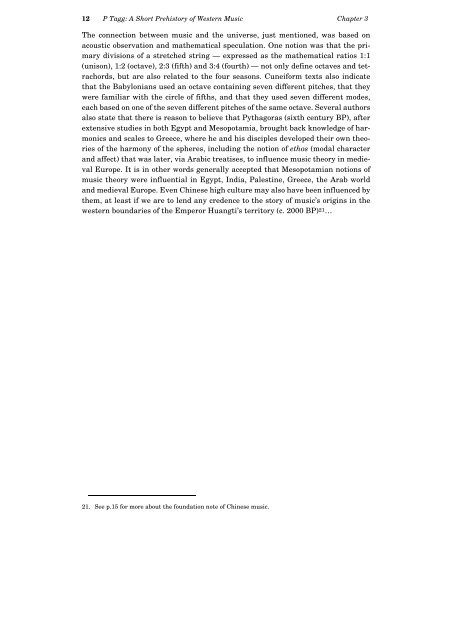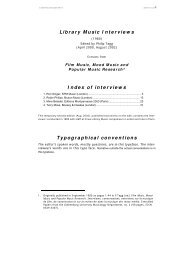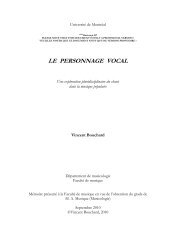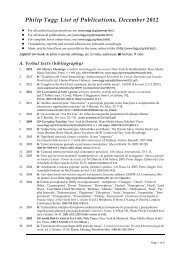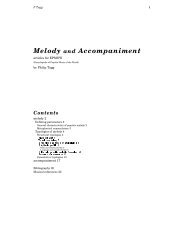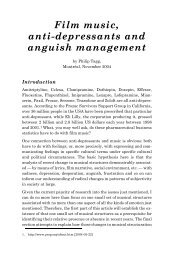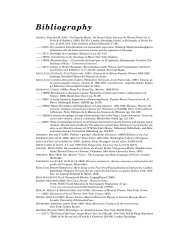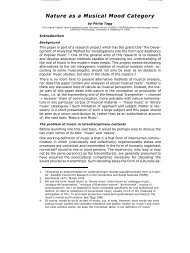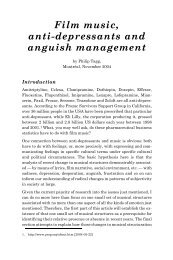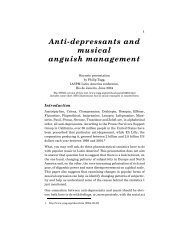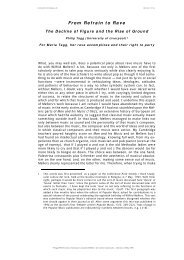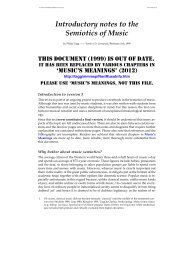A Short Prehistory of Western Music, Chapter 3
A Short Prehistory of Western Music, Chapter 3
A Short Prehistory of Western Music, Chapter 3
You also want an ePaper? Increase the reach of your titles
YUMPU automatically turns print PDFs into web optimized ePapers that Google loves.
12 P Tagg: A <strong>Short</strong> <strong>Prehistory</strong> <strong>of</strong> <strong>Western</strong> <strong>Music</strong> <strong>Chapter</strong> 3<br />
The connection between music and the universe, just mentioned, was based on<br />
acoustic observation and mathematical speculation. One notion was that the primary<br />
divisions <strong>of</strong> a stretched string — expressed as the mathematical ratios 1:1<br />
(unison), 1:2 (octave), 2:3 (fifth) and 3:4 (fourth) — not only define octaves and tetrachords,<br />
but are also related to the four seasons. Cuneiform texts also indicate<br />
that the Babylonians used an octave containing seven different pitches, that they<br />
were familiar with the circle <strong>of</strong> fifths, and that they used seven different modes,<br />
each based on one <strong>of</strong> the seven different pitches <strong>of</strong> the same octave. Several authors<br />
also state that there is reason to believe that Pythagoras (sixth century BP), after<br />
extensive studies in both Egypt and Mesopotamia, brought back knowledge <strong>of</strong> harmonics<br />
and scales to Greece, where he and his disciples developed their own theories<br />
<strong>of</strong> the harmony <strong>of</strong> the spheres, including the notion <strong>of</strong> ethos (modal character<br />
and affect) that was later, via Arabic treatises, to influence music theory in medieval<br />
Europe. It is in other words generally accepted that Mesopotamian notions <strong>of</strong><br />
music theory were influential in Egypt, India, Palestine, Greece, the Arab world<br />
and medieval Europe. Even Chinese high culture may also have been influenced by<br />
them, at least if we are to lend any credence to the story <strong>of</strong> music’s origins in the<br />
western boundaries <strong>of</strong> the Emperor Huangti’s territory (c. 2000 BP) 21…<br />
21. See p.15 for more about the foundation note <strong>of</strong> Chinese music.


